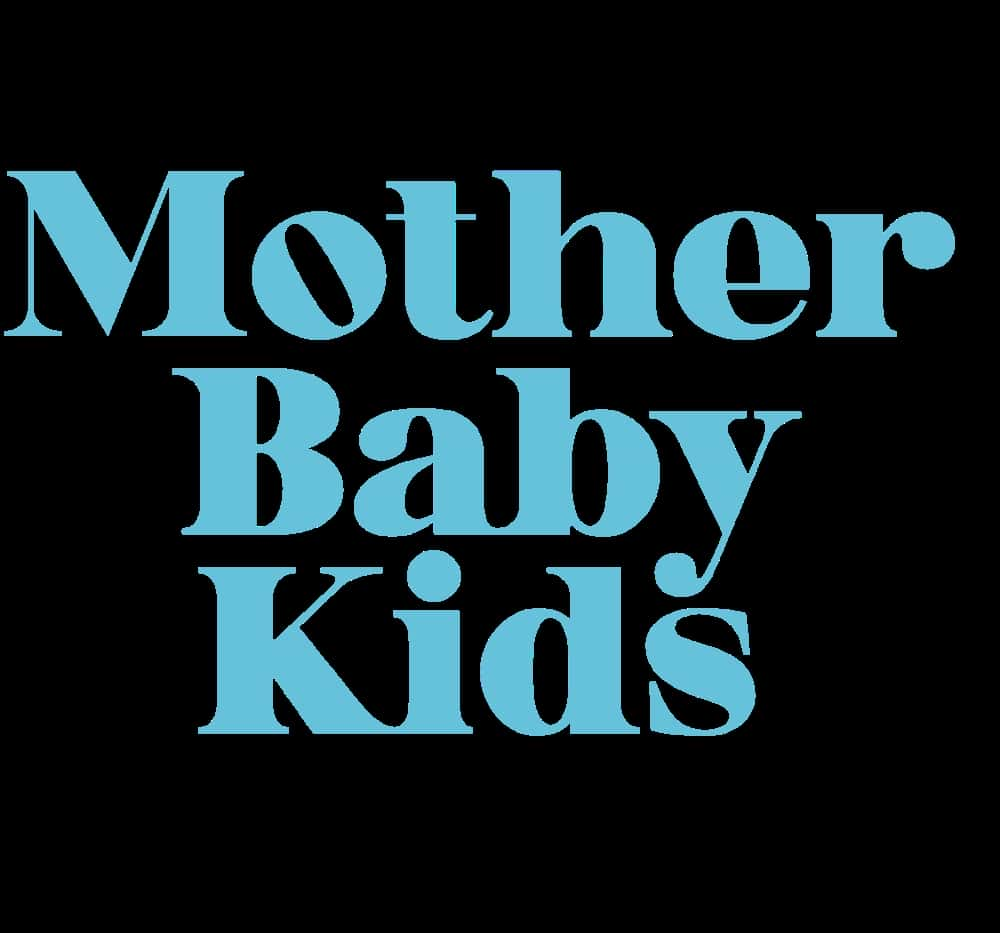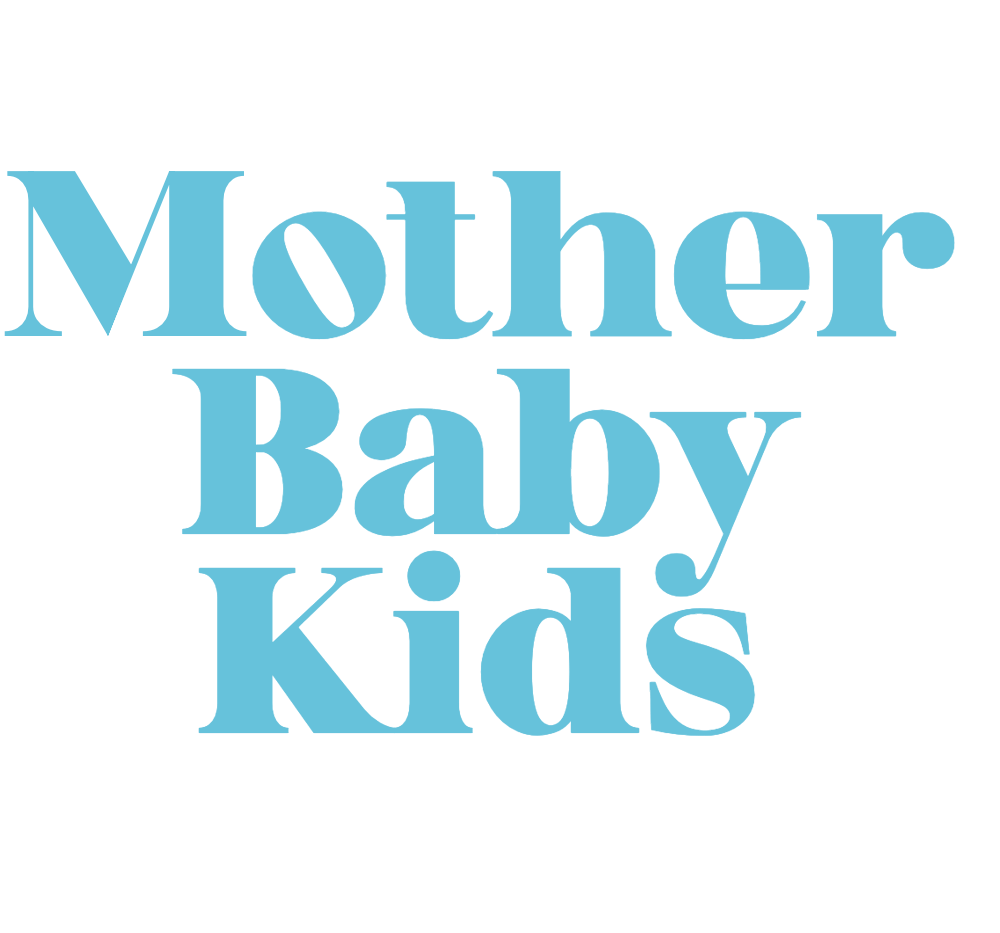Third Trimester
Is Nyquil Safe to Use During Pregnancy's Third Trimester?
Delve into the question of NyQuil's safety in the third trimester of pregnancy to uncover vital insights for expectant mothers.

Navigating the tricky waters of pregnancy care, we bump into the big question: Is NyQuil safe when you’re in the homestretch, the third trimester? Sure, parts of NyQuil might get the green light for moms-to-be, but there’s some stuff to think about.
Understanding the potential risks involved and how they may impact both the mother and the baby is crucial. A deeper look into NyQuil's effects during this critical phase of pregnancy can shed light on the best path forward in ensuring a healthy outcome for all parties involved.
Key Takeaways
- Consult healthcare provider for personalized advice on Nyquil use in third trimester.
- Avoid alcohol-containing Nyquil to minimize risks to developing baby.
- Consider safer alternatives for symptom relief during pregnancy.
- Prioritize maternal and fetal health when managing pregnancy symptoms.
Potential Risks of Nyquil in Third Trimester
In the third trimester of pregnancy, caution should be exercised when considering the potential risks associated with using NyQuil. This is a critical time for fetal development, and substances like alcohol and phenylephrine found in NyQuil could pose additional risks to the baby's well-being.
As the baby's organs are rapidly forming during this stage, it's essential to prioritize safety and consult with a healthcare provider before using any medication, including NyQuil. The risks linked to NyQuil ingredients may have more pronounced effects in the third trimester, making it essential to be well-informed about the potential dangers.
Ensuring the safety of both the mother and the baby is paramount, and making informed decisions about medication use is a fundamental part of that process. By discussing any concerns with a healthcare provider, pregnant individuals can navigate the complexities of medication use in the third trimester responsibly.
Safety Concerns With Nyquil Use

Considering the potential risks associated with NyQuil use during the third trimester of pregnancy is important for safeguarding both maternal and fetal well-being. When it comes to NyQuil use in this critical stage of pregnancy, here are some key points to keep in mind:
- Alcohol Content: NyQuil products containing alcohol should be avoided in the third trimester due to the risks it poses to the baby's development.
- Placental Blood Flow: The ingredient phenylephrine found in NyQuil can impact placental blood flow, potentially affecting the baby's oxygen and nutrient supply.
- Consult Healthcare Provider: Before using NyQuil during the third trimester, it's vital to consult with a healthcare provider. They can provide personalized guidance and guarantee the safety of both the mother and the baby.
Being cautious with NyQuil use in the third trimester is essential to minimize any potential risks to the developing baby. Opting for alcohol-free NyQuil options may be a safer choice during this sensitive period of pregnancy.
Effects of Nyquil on Fetal Health
When evaluating the impact of NyQuil on fetal health during the third trimester of pregnancy, it is essential to take into account the potential risks associated with its ingredients. NyQuil containing alcohol can cross the placenta, posing harm to the fetus. Phenylephrine in NyQuil may affect placental blood flow, presenting risks to fetal health. The combination of ingredients, including acetaminophen, dextromethorphan, and doxylamine, can also impact the developing fetus. It is vital to consult a healthcare provider before using NyQuil in the third trimester to weigh the risks and benefits to fetal health carefully. Considering the safety of NyQuil and its potential effects on the fetus is paramount to avoid unnecessary risks. Below is a table summarizing the effects of NyQuil on fetal health:
| Effects of NyQuil on Fetal Health | |
|---|---|
| Alcohol crossing placenta | Harm to fetus |
| Phenylephrine impact on blood flow | Risks to fetal health |
| Combination of ingredients | Impact on developing fetus |
Considerations for Nyquil Consumption

Our recommendation is to carefully assess the potential risks associated with NyQuil consumption during the third trimester of pregnancy. When considering NyQuil usage at this stage, here are some important points to keep in mind:
- Consultation with Healthcare Provider: Before taking NyQuil in the third trimester, it's essential to consult with your healthcare provider. They can provide personalized advice based on your specific health needs and pregnancy status.
- Avoid Certain Ingredients: Be cautious of NyQuil products containing alcohol or phenylephrine during the third trimester. These substances may have adverse effects on the developing fetus and should be avoided.
- Exploring Safer Alternatives: Considering safer alternatives or natural remedies for symptom relief in the third trimester is advisable. Natural remedies may offer relief without the potential risks associated with NyQuil ingredients.
Alternatives to Nyquil for Pregnancy
For pregnant individuals seeking alternatives to NyQuil in the third trimester, exploring safe and effective options is essential for managing symptoms while prioritizing maternal and fetal health. When looking for ways to alleviate discomfort without compromising safety, there are several alternatives to explore. Utilizing saline nasal sprays can offer relief from congestion, while natural remedies such as warm salt water gargles may help soothe a sore throat. Incorporating a humidifier in the bedroom can also aid in easing nasal congestion without the potential risks associated with NyQuil. In cases of mild aches and pains, acetaminophen can be a suitable option under the guidance of a healthcare provider. Consulting with a healthcare professional for personalized recommendations tailored to the third trimester ensures that symptom management is effective while maintaining optimal pregnancy health.
| Alternatives | Description | Safety Precautions |
|---|---|---|
| Saline Nasal Sprays | Aid in congestion relief | Read instructions carefully for proper usage |
| Natural Remedies | Soothe a sore throat | Confirm ingredients are pregnancy-safe |
| Humidifier | Helps with nasal congestion | Clean and maintain the humidifier regularly |
| Acetaminophen | Manages mild aches and pains | Follow recommended dosage and consult healthcare provider for guidance |
| Healthcare Provider | Personalized recommendations for symptom relief | Obtain professional advice before trying any new remedy |
Frequently Asked Questions
Can You Take Nyquil in 3rd Trimester?
We recommend consulting healthcare providers before taking NyQuil in the third trimester of pregnancy. Prioritizing safety for both the mother and baby is vital. Risks associated with NyQuil's ingredients, like phenylephrine, may be heightened during this period.
What Happens if You Accidentally Take Nyquil While Pregnant?
If we accidentally take NyQuil while pregnant, seeking medical advice promptly is crucial. Even without immediate symptoms, potential risks to the baby exist. Consulting a healthcare provider can guide necessary precautions and monitoring.
Is Dayquil Safe During Third Trimester of Pregnancy?
We urge caution when considering DayQuil use in the third trimester of pregnancy. Consult your healthcare provider for guidance. Prioritize safety for both mother and baby. Explore alternative cold remedies to manage symptoms effectively and guarantee well-being.
What Nighttime Cold Medicine Can You Take While Pregnant?
When pregnant, we prioritize safe choices for nighttime cold relief. Opt for acetaminophen-based medicine without alcohol or phenylephrine in the third trimester. Always consult healthcare providers for guidance to guarantee safety for both mother and baby.
Conclusion
To wrap up, as we navigate the delicate journey of pregnancy, it's important to tread carefully and consider the potential risks associated with NyQuil in the third trimester.
Just as a sailor must navigate stormy seas with caution and foresight, so too must expectant mothers make informed choices to guarantee the safety and well-being of both themselves and their precious cargo.
Consulting with a healthcare provider is always the best course of action to steer clear of any potential harm.
Nancy combines her love for writing with a deep understanding of the diverse dynamics of family life. As a parent, she brings personal experience and empathy to her work, covering topics from early childhood to the teenage years. Nancy’s work is driven by the belief that every family’s story is unique, and sharing these stories can inspire and support others on their parenting journey.
Third Trimester
10 Ways to Ease Rib Pain in the Third Trimester
Hoping to find relief from rib pain in the third trimester? Explore innovative strategies beyond the basics in this article.

As expectant parents nearing the end of pregnancy, we are well aware of the discomfort that comes with rib pain. Try exploring simple yet effective methods to alleviate this discomfort and enhance your well-being during this critical time.
By implementing strategies like wearing loose clothing and utilizing supportive pillows, you can experience a significant reduction in rib pain.
But, what other innovative and practical solutions could be the key to easing this discomfort in the third trimester?
Key Takeaways
- Use warm compress and gentle stretching to relax muscles and enhance breathing.
- Maintain proper posture and consider using a maternity belt for support.
- Opt for pregnancy-safe pain relief methods and explore acupuncture for discomfort.
- Consult a healthcare provider for personalized advice and consider water therapy for rib pain relief.
Warm Compress
Wondering how to ease rib pain in the third trimester? One effective method is using a warm compress. When those rib muscles ache during pregnancy, a warm compress can work wonders.
The heat gently seeps into the tissues, relaxing tightness and reducing discomfort. It's like a soothing hug for your ribs, bringing relief without any worries about harm to you or the baby. By increasing blood flow to the area, the warm compress helps calm inflammation and kickstarts the healing process.
Simply apply it for 15-20 minutes a few times a day, and you'll feel the tension melt away. As your body adjusts to accommodate your growing baby, the warm compress becomes your ally, making breathing easier and movements more comfortable.
Embrace the warmth, let it seep into your ribs, and experience the gentle alleviation of that persistent rib pain.
Proper Posture

Maintaining proper posture during the third trimester is essential for creating space in the torso and reducing pressure on the ribs. Good posture not only supports the spine but also helps in aligning the body correctly, preventing unnecessary strain on the rib cage.
Here are some tips to help you improve your posture and alleviate rib pain during this critical stage:
- Avoid Slouching: Slouching or hunching over can exacerbate rib pain, so try to sit and stand up straight to relieve pressure on your ribs.
- Use Pillows for Support: Adding extra pillows while sitting or lying down can provide the necessary support to maintain proper posture and reduce discomfort in the ribs.
- Practice Mindful Posture: Being mindful of your posture throughout the day can have a significant impact on your rib pain. Take breaks to stretch and adjust your position regularly to avoid putting too much strain on your torso.
Gentle Stretching
To alleviate rib pain in the third trimester, incorporating gentle stretching exercises into our routine can help improve flexibility and reduce muscle tension effectively. During this stage of pregnancy, rib pain can be a common source of discomfort due to the expanding uterus putting pressure on the ribs and surrounding muscles.
By engaging in gentle stretching, we can target specific areas of discomfort around the ribs, back, and shoulders, providing much-needed relief. These stretches not only help in alleviating immediate discomfort but also contribute to better circulation in the rib area, promoting overall relief.
Regular stretching sessions are essential for maintaining mobility and preventing stiffness in the rib cage as our bodies undergo changes. It's vital to consult with a prenatal yoga instructor or healthcare provider to learn safe and effective stretching techniques tailored to our needs during the third trimester.
Supportive Pillows

Using supportive pillows is a practical way to alleviate rib pain during the third trimester of pregnancy, providing extra cushioning and support to enhance comfort and reduce pressure on the ribs. Supportive pillows can make a significant difference in managing discomfort and promoting better sleep quality. Here are some ways these pillows can help:
- Strategic Placement: Placing pillows strategically around your body can help create a more comfortable sleeping position, relieving pressure on the ribs.
- Proper Alignment: Pregnancy pillows designed to support the belly and back can help maintain proper alignment, reducing strain on the ribs.
- Adjustable Support: Using multiple pillows allows you to adjust your sleeping position easily, finding the right support to alleviate rib pain and discomfort throughout the night.
Investing in supportive pillows tailored for pregnancy can be a game-changer in your quest for relief from rib pain during this critical stage of your journey.
Pregnancy-Safe Pain Relief
When seeking relief from rib pain during pregnancy, it's important to prioritize safe options such as acetaminophen (Tylenol) and alternative therapies like heat therapy and gentle stretching exercises. Acetaminophen is generally considered essential for managing pain in pregnancy, but it's vital to avoid nonsteroidal anti-inflammatory drugs (NSAIDs) like ibuprofen, especially in the third trimester. Before taking any medication for rib pain during pregnancy, consulting with your healthcare provider is necessary to guarantee safety for you and your baby.
In addition to medication, heat therapy, warm baths, and gentle stretching exercises can provide relief for rib pain in the third trimester. These methods are effective and safe ways to alleviate discomfort without posing risks to your pregnancy. Consider incorporating pregnancy support belts into your routine to help support your growing belly and relieve pressure on your ribs. By combining these pregnancy-safe pain relief methods, you can find comfort and ease the rib pain you may be experiencing during this stage of pregnancy.
Prenatal Massage

Prenatal massage offers a range of benefits, from easing muscle tension to promoting relaxation. During these sessions, specific techniques can target areas like the hips and gluteal muscles to help alleviate rib discomfort.
Incorporating regular prenatal massages into your routine may also create more space for your baby to settle into a more comfortable position, potentially reducing rib pain.
Benefits of Massage
Massage therapy during pregnancy can be incredibly beneficial for easing rib pain in the third trimester. Prenatal massage offers a range of advantages for mothers-to-be:
- Relieving Strained Muscles: Prenatal massage can help reduce discomfort in the hips and gluteal area, which in turn can alleviate rib pain.
- Creating Space for the Baby: By aiding the baby to drop into a good position, prenatal massage may provide relief from rib pain in the third trimester.
- Enhancing Overall Well-being: Through relaxation and pain relief, prenatal massage contributes to an improved sense of well-being during pregnancy.
These benefits highlight the importance of considering prenatal massage as a valuable option for managing rib pain in the later stages of pregnancy.
Techniques for Comfort
In our practice, we often utilize specific techniques to provide comfort and relief for expecting mothers through specialized massages. Prenatal massage is a wonderful way to alleviate rib pain in pregnant women during the third trimester. By targeting strained muscles and promoting relaxation, these massages can effectively reduce discomfort. Focusing on areas like the hips and gluteal muscles can offer additional relief for rib pain. In addition, massage therapy can create space for the baby to move into a better position, easing pressure on the ribs. Regular prenatal massages, especially after 36 weeks, can be particularly beneficial as the baby's positioning changes. Embrace the soothing benefits of prenatal massage for a more comfortable pregnancy journey.
| Techniques for Comfort |
|---|
| Targeting strained muscles |
| Promoting relaxation |
| Focusing on hips and gluteal muscles |
| Creating space for the baby |
| Regular massages after 36 weeks |
Acupuncture

When seeking relief from rib pain in the third trimester of pregnancy, acupuncture offers a safe and effective option to explore. Acupuncture involves the insertion of thin needles into specific points on the body, targeting energy pathways to alleviate discomfort. Studies suggest that this ancient practice can effectively reduce pregnancy-related discomfort, including rib pain, by promoting relaxation and providing pain relief.
Here are three key points to take into account:
- Acupuncture is considered safe for pregnant women when administered by a qualified practitioner experienced in prenatal care.
- Discussing the use of acupuncture for rib pain in the third trimester with a healthcare provider is crucial to make certain it aligns with individual needs and health conditions.
- Acupuncture sessions may not only help in relieving rib pain but also contribute to overall well-being by enhancing the body's natural healing processes.
Exploring acupuncture as a way to ease rib pain during the third trimester can offer pregnant individuals a holistic and safe approach to finding comfort and relief.
Maternity Belt

Wearing a maternity belt during the final trimester can make a significant difference in easing rib pain.
It provides essential support to the abdomen and lower back, helping to alleviate discomfort and promote better posture.
Proper adjustment and positioning of the belt are key to ensuring maximum relief and comfort throughout this pivotal stage of pregnancy.
Belt for Support
Support your growing belly and ease rib pain in the third trimester with the help of a maternity belt. Maternity belts offer essential support to your abdomen and lower back, effectively relieving pressure on your ribs. Here are three key benefits of using a maternity belt:
- Weight Redistribution: By redistributing the weight of your baby bump, the belt reduces strain on your rib cage and encourages better posture.
- Adjustable Comfort: Maternity belts are adjustable to accommodate your expanding belly, ensuring ideal comfort and support throughout your pregnancy.
- Pain Alleviation: Wearing a maternity belt can alleviate discomfort from rib pain, making daily activities more manageable as you progress through the third trimester.
Experience the relief and support you deserve with a maternity belt tailored to your needs.
Proper Adjustment Tips
To guarantee ideal comfort and support, proper adjustment of a maternity belt is essential, especially during the third trimester of pregnancy. When adjusting your maternity belt, position it low on your hips for best lower back support. It should feel snug but not too tight, allowing for comfortable movement throughout the day. By adjusting the maternity belt as needed, you can alleviate rib pain, pelvic discomfort, and other pregnancy-related aches. Here is a table to guide you in properly adjusting your maternity belt:
| Adjustment Tips | Benefits |
|---|---|
| Position low on hips | Best lower back support |
| Snug fit | Comfortable movement |
| Adjust throughout day | Alleviate rib and pelvic pain |
Water Therapy

Water therapy during the third trimester can be incredibly beneficial for easing rib pain and promoting overall comfort and well-being. Engaging in gentle exercises in a pool or warm water can help alleviate discomfort and improve your well-being in various ways:
- Buoyancy Support: The buoyancy of water reduces pressure on your ribs and joints, making movements easier and less painful.
- Circulation Improvement: Water therapy can enhance circulation, which may help reduce swelling and provide relief from the discomfort associated with rib pain.
- Muscle Strengthening: Activities like swimming or water aerobics not only strengthen muscles but also improve flexibility, promoting relaxation during the third trimester.
Embracing water therapy not only offers physical benefits but can also provide a soothing and calming experience during this challenging time. Consult with your healthcare provider before starting any water therapy to ensure it's safe and suitable for your specific pregnancy needs.
Consult Healthcare Provider

If you're experiencing persistent or worsening rib pain in the third trimester, seeking guidance from your healthcare provider is important for personalized advice and safe management. When discussing any rib pain with your healthcare provider, they can help rule out any underlying complications and recommend safe and effective methods to ease your discomfort during this critical stage of your pregnancy.
Your healthcare provider plays a crucial role in ensuring that you receive appropriate care tailored to your specific needs, so don't hesitate to reach out to them. Regular communication with your healthcare provider is key to monitoring and addressing rib pain in the third trimester, as they can provide the necessary support and guidance throughout this journey.
Trust in your healthcare provider's expertise to manage your rib pain effectively and prioritize your well-being and comfort during this transformative time.
Frequently Asked Questions
How Can I Stop My Ribs From Hurting in My Third Trimester?
I comprehend how uncomfortable rib pain can be in the third trimester. Here are some helpful tips to provide relief: practice good posture, use hot/cold compresses, wear loose clothing, use supportive pillows, and enjoy regular massages.
What Helps Broken Rib Pain During Pregnancy?
When broken rib pain arises during pregnancy, seeking healthcare guidance is essential. Posture adjustments, supportive pillows for sleep, heat packs, warm baths, and loose clothing can ease discomfort. Consult your provider for safe pain management options.
How Can I Sleep With Rib Pain in Third Trimester?
When dealing with rib pain in the third trimester, finding a comfortable sleeping position is essential. We recommend using extra pillows for support, sleeping on your side with a pillow between your knees, and trying different positions to alleviate discomfort.
How Do I Get My Baby to Stop Hurting His Ribs?
Let's find comfort in gentle movements, warmth, deep breathing, and support belts. Consulting with our healthcare provider guarantees personalized guidance. Together, we'll navigate this rib pain caused by our baby's movements in the third trimester.
Conclusion
To summarize, when dealing with rib pain in the third trimester, it's important to remember that relief is possible. By incorporating simple strategies like using warm compresses, maintaining good posture, and seeking support from healthcare providers, expecting mothers can find comfort during this challenging time.
As the saying goes, 'where there's a will, there's a way.' Stay strong, mama, and don't hesitate to seek help when needed. You've got this!
Nancy combines her love for writing with a deep understanding of the diverse dynamics of family life. As a parent, she brings personal experience and empathy to her work, covering topics from early childhood to the teenage years. Nancy’s work is driven by the belief that every family’s story is unique, and sharing these stories can inspire and support others on their parenting journey.
Third Trimester
Understanding the Causes of High Fetal Heart Rate in Third Trimester
Tackle the enigma of high fetal heart rate in the third trimester to unravel crucial insights for optimal prenatal care.

When analyzing the increased fetal heart rate in the third trimester, it is essential to understand the various factors that contribute to this important aspect of prenatal care. Understanding these intricacies is crucial for ensuring the best outcomes for both the mother and the baby.
From subtle physiological changes to more overt indicators, the causes of elevated fetal heart rate can offer insights into the well-being of the developing fetus. By unraveling these mysteries, healthcare providers can implement tailored interventions that may greatly impact the pregnancy journey.
Key Takeaways
- Maternal conditions like hyperthyroidism and hyperglycemia contribute to high fetal heart rate.
- Immediate medical attention is necessary due to risks like preterm labor and fetal distress.
- Diagnostic tests such as non-stress tests and Doppler ultrasounds aid in identification.
- Management strategies involve multidisciplinary approaches for optimal fetal well-being.
High Fetal Heart Rate Overview
In the domain of prenatal care, understanding the nuances of high fetal heart rate in the third trimester is paramount for ensuring the well-being of both mother and baby. High fetal heart rate, also known as fetal tachycardia, is characterized by a consistent rate exceeding 160 beats per minute. Diagnostic tests such as non-stress tests (NST) and Doppler ultrasound play a critical role in monitoring this condition.
Maternal conditions like hyperthyroidism, hyperglycemia, and dehydration can contribute to elevated fetal heart rate, emphasizing the importance of thorough maternal health assessment. The effects of high fetal heart rate extend beyond numerical values, increasing the risk of preterm labor and fetal distress.
Management strategies for addressing high fetal heart rate may involve a multidisciplinary approach. This could include managing underlying maternal conditions, close fetal monitoring, and, in severe cases, consideration of emergency delivery to prevent adverse outcomes for both the mother and the baby. Vigilance in detecting and managing high fetal heart rate is key to ensuring a safe and healthy pregnancy journey.
Common Causes in Third Trimester

Exploring the factors that precipitate high fetal heart rate in the third trimester sheds light on the common causes impacting maternal and fetal well-being. Here are four common causes in the third trimester:
- Maternal Conditions: Maternal fever, infections, dehydration, anxiety, and certain medications can lead to elevated fetal heart rate. Conditions like hyperthyroidism, hyperglycemia due to diabetes, and fetal anemia also contribute to this issue.
- Risks of Preterm Labor: High fetal heart rate in the third trimester increases the risk of preterm labor, fetal hypoxia, reduced heart rate variability, and fetal acidosis, affecting fetal growth and development.
- Impact on Fetal Well-being: Fetal distress can cause an increase in heart rate, necessitating immediate medical attention to prevent complications.
- Diagnostic Tests: Utilizing diagnostic tests such as non-stress tests, biophysical profiles, Doppler ultrasounds, fetal echocardiography, and umbilical artery blood flow assessments aids in identifying the causes of high fetal heart rate in the third trimester.
Impact on Baby and Mother
What specific impacts does high fetal heart rate in the third trimester have on both the baby and the mother?
High fetal heart rate in the third trimester can pose risks for both the baby and the mother. For the baby, an elevated heart rate can indicate potential issues such as preterm labor and hypoxia, which may affect fetal growth and development. Maternal conditions like hyperthyroidism and hyperglycemia linked to diabetes can contribute to this high fetal heart rate, further impacting the baby. Additionally, factors such as maternal dehydration, anxiety, infections, and certain medications can also play a role in increasing the fetal heart rate.
For the mother, the presence of a high fetal heart rate may necessitate immediate medical attention to address underlying maternal and fetal health concerns effectively. Monitoring and managing high fetal heart rate in the third trimester is essential to guarantee the well-being of both the baby and the mother.
Monitoring and Medical Interventions
High fetal heart rate in the third trimester necessitates close monitoring through diagnostic tests such as non-stress tests, biophysical profiles, Doppler ultrasounds, fetal echocardiography, and umbilical artery blood flow assessments. When dealing with high fetal heart rate, interventions are vital to guarantee the well-being of both the baby and the mother.
Here are some key points to ponder:
- Non-Stress Tests: These evaluate the baby's heart rate in response to its movements, providing valuable insights into fetal well-being.
- Biophysical Profiles: This test combines ultrasound and fetal heart rate monitoring to assess various aspects of fetal health, including amniotic fluid levels and fetal movements.
- Doppler Ultrasounds: They help in evaluating blood flow in the umbilical cord, placenta, and fetal brain, aiding in the detection of any abnormalities.
- Fetal Echocardiography: This specialized ultrasound assesses the baby's heart structure and function, vital in cases of suspected cardiac issues.
Through these diagnostic tests and timely medical interventions, healthcare providers can effectively manage high fetal heart rate, address maternal conditions, and take preventive measures to promote a healthy pregnancy outcome.
Postnatal Care and Considerations
Upon birth, infants with fetal tachycardia undergo thorough evaluation by a medical team to assess their heart rhythm. Postnatal care for these infants involves continuous monitoring and limited evaluation in the hospital setting to guarantee their well-being.
In cases where abnormal heart rates persist, additional therapy may be necessary to regulate the heart rhythm effectively. Treatment options postnatally may include interventions such as electrical cardioversion or medication to manage the infant's heart rate. It's important for medical professionals to closely follow up on these infants to track their progress and adjust treatment plans accordingly.
Fortunately, with proper postnatal care and timely interventions, most infants with fetal tachycardia can discontinue heart rhythm medications by the age of one, indicating successful management of the condition. The collaborative efforts of medical teams in providing inclusive postnatal care play a significant role in ensuring the health and development of these infants with abnormal heart rates.
Frequently Asked Questions
What Is an Abnormal Fetal Heart Rate in the Third Trimester?
An abnormal fetal heart rate in the third trimester is a consistent rate exceeding 160 beats per minute. Normal rates range between 110-160 bpm. Monitoring, tests like NST, BPP, Doppler ultrasound, and consults with specialists are essential for evaluation.
What Does It Mean When Your Unborn Baby Has a High Heart Rate?
When our unborn baby has a high heart rate, it indicates potential issues like maternal fever, fetal distress, or dehydration. Monitoring through tests like non-stress tests and Doppler ultrasounds helps understand and manage any underlying conditions promptly.
Can Maternal Stress Cause High Fetal Heart Rate?
Yes, maternal stress can cause high fetal heart rate in the third trimester. Stress triggers hormone release impacting the baby's heart rate. Managing stress through relaxation techniques like deep breathing is important for maintaining best fetal heart rate.
How Do I Know if My Baby Is in Distress in 3rd Trimester?
In the third trimester, signs of fetal distress like decreased movements or persistently high heart rate above 160 bpm may indicate a problem. Contact your healthcare provider promptly for evaluation and necessary interventions to guarantee your baby's well-being.
Conclusion
To sum up, understanding the causes of high fetal heart rate in the third trimester is essential for ensuring a healthy pregnancy. By addressing underlying factors such as maternal fever, stress, and dehydration, we can promote the well-being of both the baby and the mother.
Remember, 'knowledge is power' when it comes to managing high fetal heart rate and ensuring a safe delivery for all involved. Stay informed, stay vigilant, and prioritize the health of both mother and baby.
Nancy combines her love for writing with a deep understanding of the diverse dynamics of family life. As a parent, she brings personal experience and empathy to her work, covering topics from early childhood to the teenage years. Nancy’s work is driven by the belief that every family’s story is unique, and sharing these stories can inspire and support others on their parenting journey.
Third Trimester
What Can a Third Trimester Ultrasound Reveal?
Take a peek into the third trimester ultrasound findings to uncover crucial insights about your baby's well-being and your pregnancy's progress.

The saying “knowledge is power” is particularly relevant when it comes to a third trimester ultrasound, as the information obtained can have a significant impact.
From the baby's growth and position to the placental health and potential complications, this scan offers a window into the well-being of both the baby and the pregnancy.
The information revealed during this ultrasound can be important for making informed decisions and ensuring the best possible outcome for the pregnancy.
So, what exactly can this ultrasound disclose in the important third trimester?
Key Takeaways
- Assess fetal growth and well-being for a healthy delivery.
- Determine baby's position to plan for a safe birth.
- Detect complications like abnormalities or placental issues.
- Evaluate placenta health and amniotic fluid levels for optimal fetal development.
Growth and Development Assessment
Evaluating the growth and development of the fetus in the third trimester through ultrasound enables tracking of length and weight measurements to monitor progress effectively. It's a time of anticipation and wonder, as we witness the miracle of life unfolding before our eyes.
The ultrasound reveals intricate details about fetal growth, including the estimated fetal weight, ensuring that our little one is thriving inside the womb. We can observe the levels of amniotic fluid, a crucial indicator of the baby's environment, and check for any signs of fetal abnormalities that may require attention.
Feeling the joy of fetal movement and seeing the umbilical cord blood flow in real-time fills us with gratitude and reassurance. Every beat of the heart and stretch of tiny limbs is a proof to the beauty of creation.
Through these moments of connection, we bond with our baby even before they enter the world, cherishing each milestone along this miraculous journey.
Baby's Position and Presentation

In the third trimester ultrasound, we can determine the baby's position in the uterus, providing essential information for planning the delivery process. This examination helps us identify the fetal position, whether the baby is in a cephalic (head down), breech, or transverse presentation.
Understanding the baby's position is critical as it allows healthcare providers to assess the feasibility of a vaginal delivery. In cases where there's abnormal positioning detected, such as breech or transverse presentations, interventions during birth may be necessary to guarantee a safe delivery for both the baby and the mother.
The information gathered from the ultrasound not only aids in determining the best course of action for delivery but also guides medical decisions to address any challenges that may arise during the birthing process. Being aware of the baby's position empowers us to make informed decisions and tailor the delivery plan to guarantee a smooth and safe birth experience.
Detection of Complications
Understanding the baby's position in the uterus during the third trimester ultrasound enables us to detect various complications that may affect the health of both the mother and the baby. This critical scan helps identify fetal abnormalities, placental issues, and conditions like fetal growth restriction, oligohydramnios, and placenta previa.
By evaluating amniotic fluid levels and looking for signs of cord compression, we can catch potential problems early on. The ultrasound also aids in recognizing fetal distress and the risk of macrosomia, a condition where the baby is larger than average. Additionally, it allows monitoring for concerns such as preeclampsia, fetal anomalies, and umbilical cord abnormalities.
Detecting these complications through the third trimester ultrasound is essential as it provides valuable insights that can impact the delivery process and the well-being of both the mother and the baby.
Placenta Health Evaluation

Evaluating the health of the placenta in the third trimester ultrasound is pivotal for ensuring the best nutrient and oxygen supply to the fetus. During this ultrasound, we focus on appraising the placenta's position, checking for any abnormalities like placenta previa, which could impact delivery.
Monitoring the placental blood flow using Doppler ultrasound helps us guarantee that the baby is receiving sufficient oxygen and nutrients for the best development. By appraising the placental health, we can also detect any blood clots that might hinder fetal well-being and growth.
This detailed examination of the placenta's health and function is critical in guaranteeing that it can adequately support the baby until birth. It allows us to intervene early if any issues are detected, ensuring the well-being of both the mother and the baby.
The third trimester ultrasound plays a significant role in safeguarding the health and development of the fetus by closely monitoring the placenta's condition.
Amniotic Fluid Levels Analysis
As we shift our focus to the amniotic fluid levels analysis in the third trimester ultrasound, our attention now turns to evaluating the environment surrounding the fetus in the womb. Monitoring the levels of amniotic fluid, whether it be polyhydramnios (excessive fluid) or oligohydramnios (low fluid), is essential for evaluating fetal well-being and development. Changes in these levels can indicate potential issues such as fetal growth problems or placental dysfunction, impacting the overall health and viability of the pregnancy. By accurately evaluating the amniotic fluid levels, healthcare providers can gather essential insights into the baby's environment and make informed decisions regarding the next steps in care.
| Amniotic Fluid Levels Analysis | |
|---|---|
| Polyhydramnios | Excessive amniotic fluid |
| Oligohydramnios | Low levels of amniotic fluid |
| Fetal well-being | Evaluation of baby's health |
| Fetal growth problems | Issues with baby's development |
| Pregnancy viability | Determining health of the pregnancy |
Frequently Asked Questions
What Are the Abnormalities in the Third Trimester Ultrasound?
We can identify abnormalities like fetal growth issues, amniotic fluid imbalances, abnormal fetal presentation, and placental problems during a third trimester ultrasound. It helps us detect potential concerns early, providing essential information for care.
What Are the Benefits of Ultrasound in the Third Trimester of Pregnancy?
In the third trimester, ultrasound benefits include evaluating fetal well-being, guiding medical decisions, and ensuring best outcomes for both mother and baby. It helps detect abnormalities, monitor growth, and evaluate fetal health.
What Can a 36 Week Ultrasound Tell You?
At 36 weeks, our ultrasound can reveal the baby's position, weight around 6 pounds, amniotic fluid levels, and confirm placental health. It captures detailed fetal images for abnormalities, aiding in preparing for a safe delivery.
What Do They Check at 32 Week Ultrasound?
At 32 weeks, we inspect fetal growth, position for delivery, movements, amniotic fluid levels, placental function, and blood flow. This ultrasound helps evaluate the baby's well-being and validates everything is on track for a healthy delivery.
Conclusion
To summarize, a third trimester ultrasound provides essential information about the baby's growth, development, and overall well-being.
While some may worry about the discomfort or anxiety associated with the procedure, rest assured that the benefits far outweigh any temporary discomfort.
This scan allows healthcare providers to detect potential issues early on, ensuring proper management and care for both the mother and the baby.
Trust in the process and the expertise of your healthcare team for a safe and healthy pregnancy journey.
Nancy combines her love for writing with a deep understanding of the diverse dynamics of family life. As a parent, she brings personal experience and empathy to her work, covering topics from early childhood to the teenage years. Nancy’s work is driven by the belief that every family’s story is unique, and sharing these stories can inspire and support others on their parenting journey.
-

 Third Trimester2 weeks ago
Third Trimester2 weeks agoManaging Nausea in the Third Trimester: A How-To Guide
-

 Third Trimester1 week ago
Third Trimester1 week agoManaging Nausea During the Third Trimester: A How-To Guide
-

 Third Trimester2 weeks ago
Third Trimester2 weeks agoSafe Third Trimester Exercise Guide for Moms-to-Be
-

 First Trimester3 months ago
First Trimester3 months agoDramamine Use in Pregnancy: First Trimester Guide
-

 Newborn Care7 hours ago
Newborn Care7 hours agoNewborn Care Basics: A Step-by-Step Guide
-

 Second Trimester3 months ago
Second Trimester3 months ago10 Common Causes of Dizziness in the Second Trimester
-

 Finding Time for Self2 months ago
Finding Time for Self2 months agoSelf-Care Tips for Single Parents | Make Time for You
-

 Finding Time for Self2 months ago
Finding Time for Self2 months agoSelf-Care for Stay-at-Home Moms: Making Time













